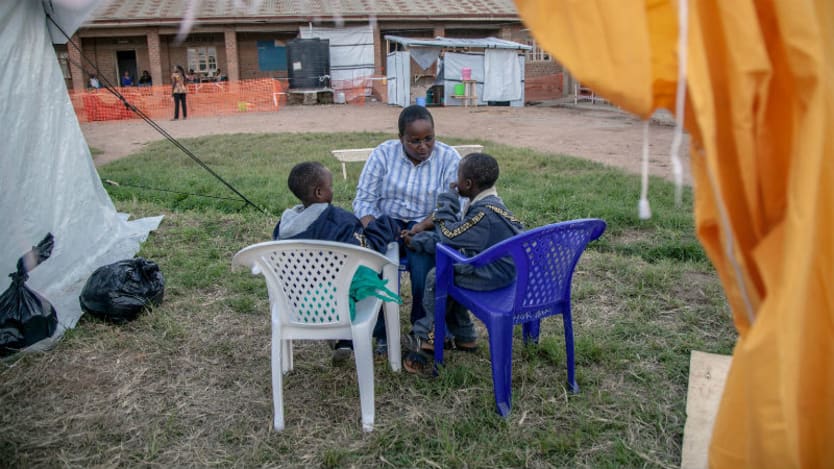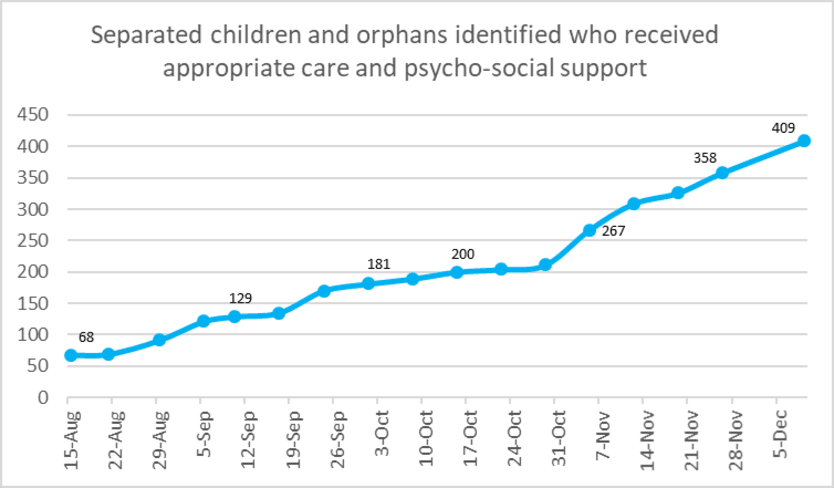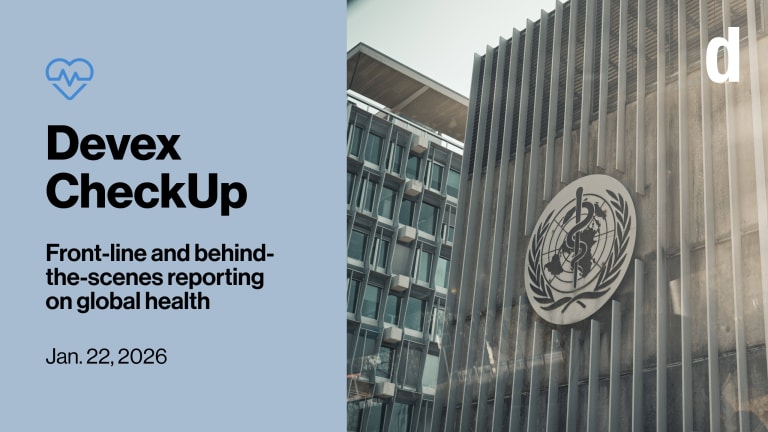
MANILA — Violence coupled with constant population movement in the eastern Democratic Republic of the Congo continue to challenge the government’s and aid organizations’ response to the Ebola outbreak, which is taking a heavy toll on children.
“The first weeks or so, we haven't had any concrete cases of Ebola orphans or unaccompanied children. That figure is growing over time because the epidemic is geographically spreading.”
— Yves Willemot, chief of communications in DRC, UNICEFSix new cases were confirmed in the latest Jan. 2 update by the DRC Ministry of Health. The continued appearance of new cases makes it difficult for those involved in the response to predict or provide a plausible timeline as to the end of the outbreak. To date, there have been more than 600 confirmed and probable cases and 368 deaths since the outbreak was declared in August 2018.
“We are not today in the situation of an explosion, but at the same time, we're not in a situation where we see a pattern of the number of cases in Butembo, in Komanda, reducing on a daily basis,” said Yves Willemot, the United Nations Children’s Fund chief of communications in DRC.
“We're still going to have our response in place for at least I would say three months plus. And that would suppose that the epidemic would end as of the coming days, which is very doubtful,” he told Devex.
That uncertainty raises UNICEF’s concerns on the toll the outbreak is having on children. Children accounted for more than a third of Ebola cases in eastern DRC, according to a statement from UNICEF in December, some of them under 5 years old. And to date, there are now over 400 cases of orphaned and unaccompanied children in Ebola-affected communities, as per the latest data communicated to Devex by the U.N. agency. Most of them are orphans, while unaccompanied children have one or both parents currently isolated in Ebola treatment centers.

UNICEF has set up child care centers next to the Ebola treatment centers in Beni and Butembo to take care of unaccompanied infants and young children up to 8 years old. But these centers are also helping the agency monitor the children. They are considered “high-risk contacts” who may develop the disease from direct contact with their parents.
The children are being kept in the nurseries until their parents are found Ebola free or cured from the disease, and if they pass the 21 day quarantine period for Ebola. Those found to develop the disease are brought to the Ebola treatment centers. Those who don’t contract the disease or overcome it but are left with no surviving parents are taken in by surviving family members, relatives, or identified foster families in the community, Willemot said.
UNICEF has to date trained more than 350 psychosocial assistants coming from the communities that speak the language and understand the context in which they operate to work with communities, identify foster families, and work with schools so that children can go back to their communities and rebuild their lives.
More on the DRC Ebola outbreak:
► Opinion: In DRC Ebola crisis, every red line has been crossed
► Tedros: Ebola outbreak highlights weakness for panic-based response
“The first weeks or so, we haven't had any concrete cases of Ebola orphans or unaccompanied children. That figure is growing over time because the epidemic is geographically spreading,” Willemot said, adding “the more the outbreak is reaching other areas, the more we are concerned about the number of orphans and unaccompanied children.”
The continued spread of the disease means groups will require continued financial support to sustain their response, which Willemot said will be a “fight on the longer term.”
“If we are today in a situation where we might have the necessary resources in place to have the response implemented ..., the challenge is to make sure that we can continue to implement it tomorrow,” he said.
But he also emphasized the need for donors to understand how crucial community engagement plays in the response.
“Obviously, treatment of cases is crucially important. It's about saving lives, but if we want to control the outbreak we have to be active before a case happens,” he said.








